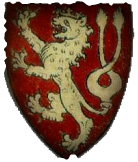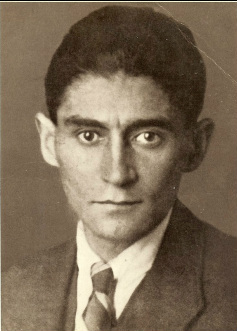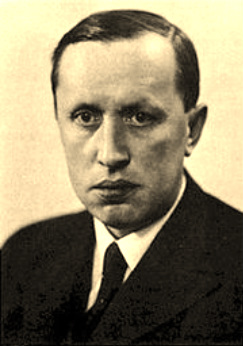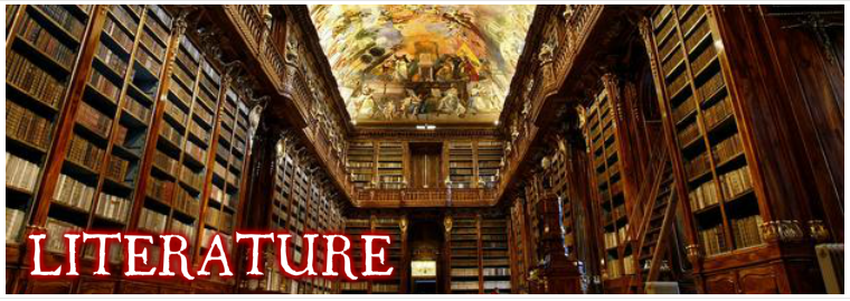
Czech literature and celebrated authors are highlighted in this section.
You can learn more about the times that helped shape these writer's lives and, in-turn, shaped their work.
Franz Kafka, (3 July 1883 – 3 June 1924)

Franz Kafka was born to s German-speaking Jewish family in Prague and would become a famed author only after his death. His existentialist style of prose gave birth to written works such as The Metamorphosis, The Trial, and The Castle.
Kafka battled his demons of low self worth through his writings and some say through his constant womanizing. He found his political voice in socialist ideals while still a young man and several Kafka critics still debate that his politics actually came through in his later work.
The term "Kafkaesque" was coined in his name to mean a person or a group feeling overpowered by bureaucracies and a sense of helplessness. Others say this term is not indicative of his hope for something better.
Franz Kafka never realized his importance to the literary world during his life time as several of his stories were released following his death from TB in 1924. He is buried in the New Jewish Cemetery in Prague-Žižkov.
Kafka battled his demons of low self worth through his writings and some say through his constant womanizing. He found his political voice in socialist ideals while still a young man and several Kafka critics still debate that his politics actually came through in his later work.
The term "Kafkaesque" was coined in his name to mean a person or a group feeling overpowered by bureaucracies and a sense of helplessness. Others say this term is not indicative of his hope for something better.
Franz Kafka never realized his importance to the literary world during his life time as several of his stories were released following his death from TB in 1924. He is buried in the New Jewish Cemetery in Prague-Žižkov.
Karel Čapek, (9 January 1890 – 25 December 1938)

Čapek wrote with intelligence and humor on a wide variety of subjects that included science fiction. As a pioneer of the science fiction genre, he focused on the possibilities of social evolution among all peoples. His skill in this genre influenced some of the great of science fiction, including American Ray Bradbury.
His humorist works played on his use of the Czech language and indeared him to his people.
Some of his works include, The Makropulos Affair, The Absolute at Large, and War with the Newts.
His enemies, specifically the Nazis, did not like his view on the dangers of dictatorship and his anti-nazi plays written in the 1930s. The Nazi Gestapo had put his name atop of Czechoslovakia's most wanted but they were too late to capture him as he died from double pneumonia on December 25, 1938 shortly after part of Czechoslovakia was annexed by Nazi Germany. Čapek is buried at the Vyšehrad cemetery in Prague
A little known fact was that Capek was credited for coining the term "Robot" in the lexicon of science fiction literature.
His humorist works played on his use of the Czech language and indeared him to his people.
Some of his works include, The Makropulos Affair, The Absolute at Large, and War with the Newts.
His enemies, specifically the Nazis, did not like his view on the dangers of dictatorship and his anti-nazi plays written in the 1930s. The Nazi Gestapo had put his name atop of Czechoslovakia's most wanted but they were too late to capture him as he died from double pneumonia on December 25, 1938 shortly after part of Czechoslovakia was annexed by Nazi Germany. Čapek is buried at the Vyšehrad cemetery in Prague
A little known fact was that Capek was credited for coining the term "Robot" in the lexicon of science fiction literature.
